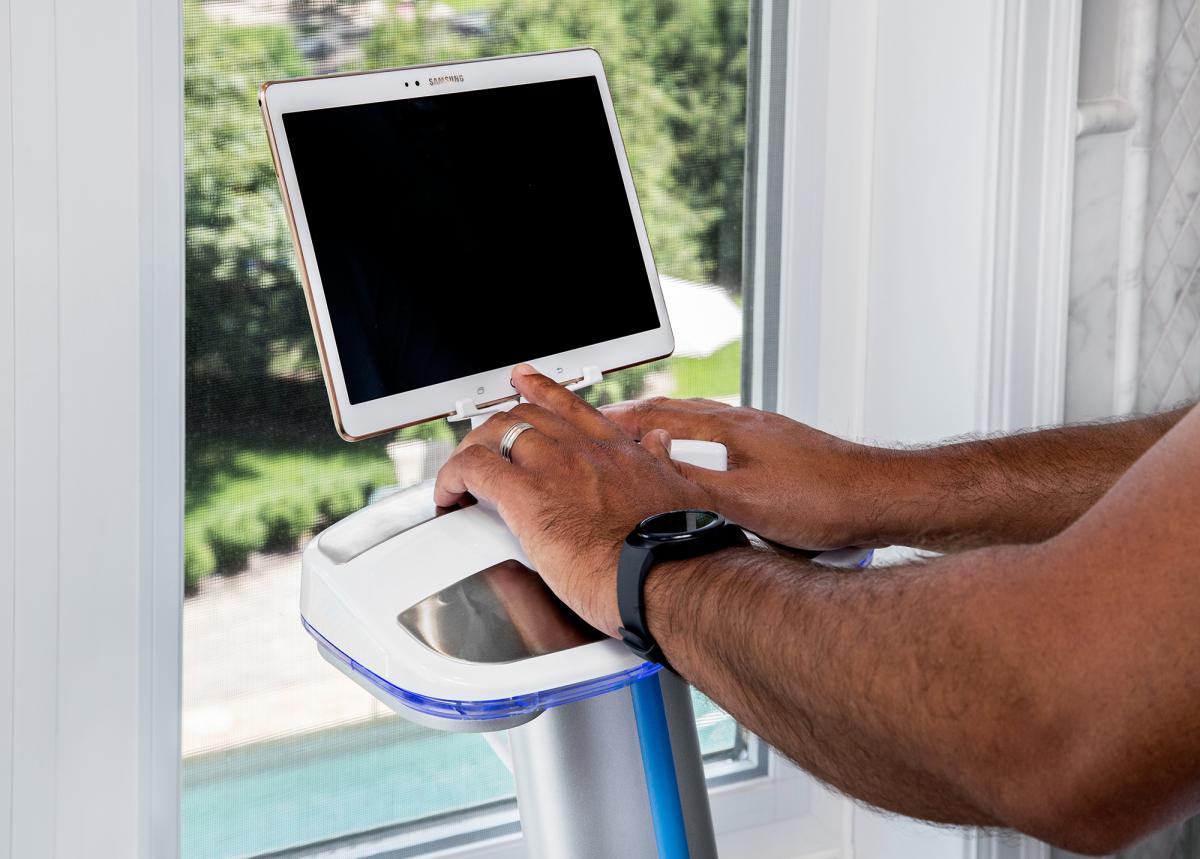 Medical technology company ImpediMed launched a direct-to-consumer connected device that tracks body composition, fluid status and hydration in a variety of settings.
Medical technology company ImpediMed launched a direct-to-consumer connected device that tracks body composition, fluid status and hydration in a variety of settings.
SOZO is two-pound, sensor-enabled scale with a connected stand and platform cradle to rest either a tablet or smartphone. The users steps on the scale, which has eight body sensors and four weight sensors, waits a few seconds and graphics come up on their device screen showing their body-fluid data. The technology combines artificial intelligence with a fluid measurement method called bioimpedance spectroscopy. The offering is broken into two platforms, fitness and medical, and the initial product offering, SOZOFit, geared for the wellness market.
“This is for athletes, coaches and individuals to look at their weight, body composition and hydration levels,” ImpediMed CEO Rick Carreon told MobiHealthNews. “It’s a very interactive, intuitive system that shows trends over time."
Predictive analytics in SOZO will access cloud-based historical data to create customized plans for a users’ personal health and wellness goals. The device has the ability to integrate with other apps and has an open API.
“It’s a single device that, ultimately, can integrate with an infinite amount of applications,” said Carreon. “It relieves the user of having to use a number of stand-alone devices, which all have different batteries, form factors and applications that you have to keep around."
On the medical front, there are forthcoming products on the SOZOmed platform, and ImpediMed is currently seeking FDA clearance. The SOZOmed device will soon be used in a study by San Diego, California hospital system Scripps Health in a validation study to monitor patients with heart failure. The technology on the SOZOmed platform aims to aid healthcare professionals to clinically assess secondary unilateral lymphedema of the arm and leg in women, and in the leg in men.
This is the first product Australia-based ImpediMed has launched in over a decade, and it aims to relieve patients of the need to use multiple devices, and physicians the need to look at multiple datasets from all of those devices. Ultimately, it will be a device a doctor could write a prescription for.
“The goal was to make this as patient and physician centric as possible,” said Carreon. “It’s easy for the patient to use. It’s a bring-your-own-device platform, they can have it set up ahead of time step on the scale, it gives graphics and shows trends, and it transmits that data to hospital or wherever it needs to go. If it identifies risks to the patient’s health, that information is flagged and clinicians will know when to intervene or when the patient is fine.”
Parallel to the Scripps study, ImpediMed is also working to create a larger, pivotal study and trying to build partnerships with clinicians and health systems as they seek FDA clearance. The company has convened a medical advisory board specially on heart failure, which includes agreements with the Mayo Clinic and Harvard clinical research, to take a look at technology that could detect very small changes in the body that can predict heart failure.


















